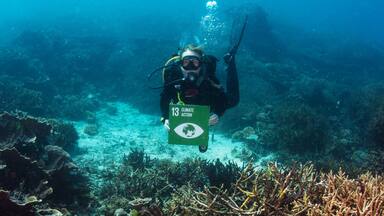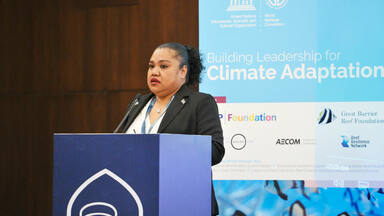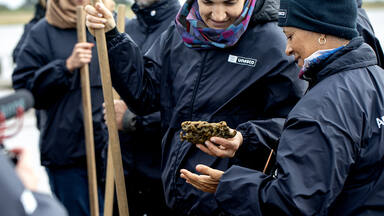Building climate resilience for people and nature at marine World Heritage sites
By developing pioneering resilience strategies, both Ningaloo Coast in Australia and Belize Barrier Reef Reserve System in Belize work to safeguard their World Heritage-listed coral ecosystems from the impacts of climate change and strengthen the resilience of local communities that depend on the reef for their livelihoods.
On 18 May 2023, experts in resilience-based management and local teams from UNESCO marine World Heritage sites met online to share best practices and first-hand insights on designing and implementing a resilience strategy that takes a holistic approach in addressing the impacts of climate change and helps communities to adapt to the inevitable change.
Earlier this year, both the Ningaloo Coast (Australia) and the Belize Barrier Reef Reserve System (Belize) became the first marine World Heritage sites to launch resilience strategies, supported by the Resilient Reefs Initiative. The sites have since started implementation with initial seed funding for priority actions that will strengthen the resilience of these globally iconic marine protected areas.
Managers from Ningaloo Coast highlighted the importance of understanding local governance and legislative contexts that guide a site-specific resilience strategy. Other learnings shared included the value of targeting early wins to increase engagement and collaboration among local partners.
Insights from Belize Barrier Reef Reserve System helped managers understand the critical need to establish and maintain communication with diverse stakeholders in ensuring ownership and effective implementation of climate actions.
Developing a resilience strategy is a powerful way to help local managers and stakeholders understand and adopt a more risk-aware, pro-active and integrated, planning approach and build resilience for both community and ecosystem.
Resilient Reefs is a pioneering USD$ 10 million global partnership that is guiding four World-Heritage listed coral reefs in Palau, Belize, France, and Australia to apply an innovative approach to change the way they understand climate risk and plan for the future. Together with the local management authorities and communities, the initiative is developing resilience strategies in each of these pilot sites. The initiative was an outcome of the 2016 third Global Marine World Heritage Managers Conference held in the Galapagos Islands (Ecuador), which exposed how ill-equipped most World Heritage managers are to tackle the challenges posed by climate change.
This online meeting was the eight edition in a digital exchange series that was launched by the UNESCO World Heritage Marine Programme in April 2020. The online meetings provide an exclusive online platform where managers from the 50 marine World Heritage sites connect and share successes in tackling key conservation challenges.
Due to their status as the world’s flagship protected areas, UNESCO marine World Heritage sites are uniquely positioned to drive change and innovation, set new global standards in conservation excellence, and serve as beacons of hope in a changing ocean. The online meetings are made possible thanks to the support of the French Biodiversity Agency and the Great Barrier Reef Foundation. Participation is upon invitation only.





